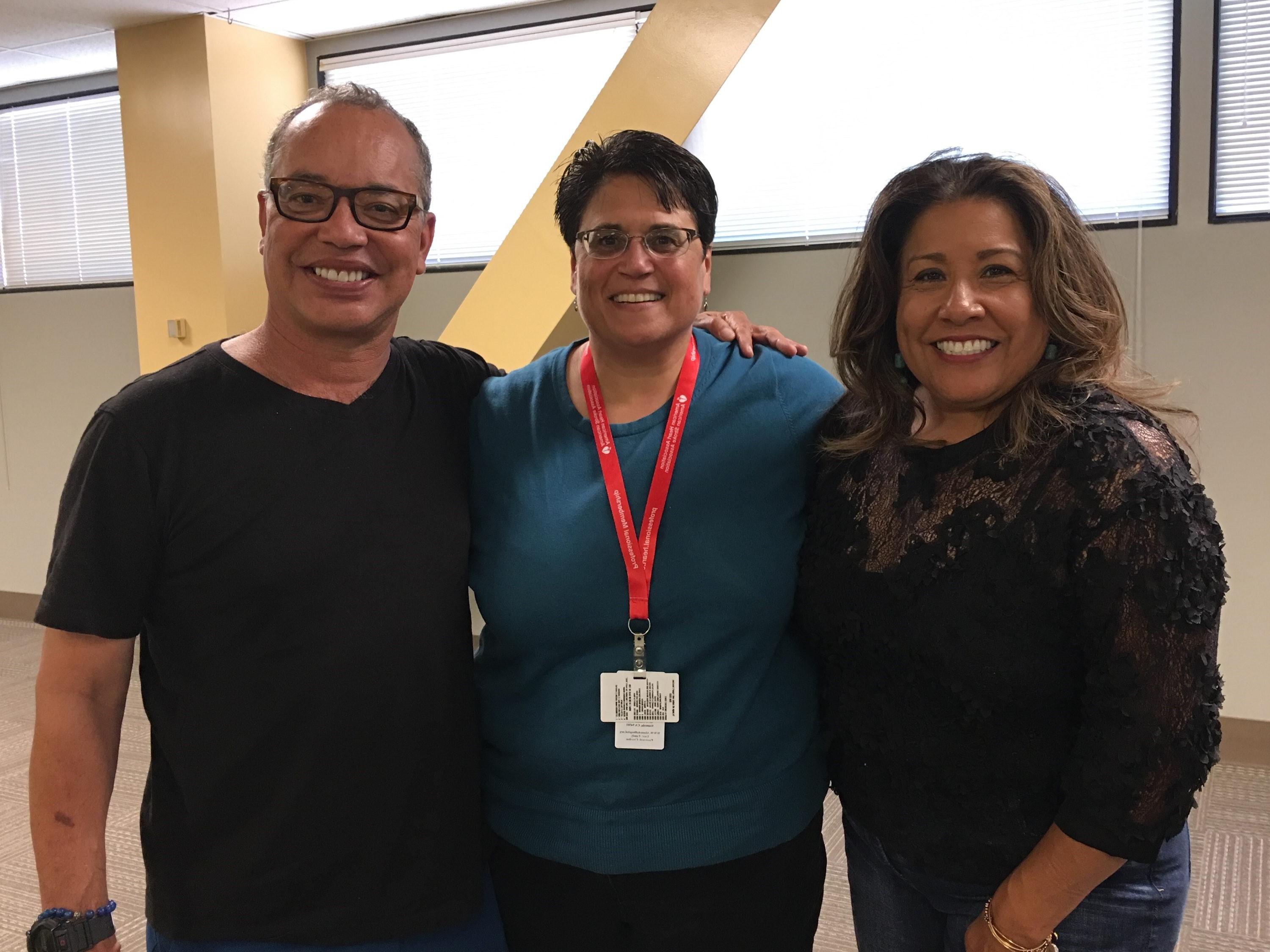(Photo: left to right–Denise, Dr. Claudine Dutaret, Stroke Center medical director, and Tyrone, at June 2 Stroke Center reunion)
Living alone in the city of Alameda, 60-year-old Craig was watching an after-dinner TV movie when the screen became blurry and he started seeing double. He got up to adjust the TV screen and immediately collapsed. His limbs were weak and he had trouble moving, but managed to crawl to his phone and speed-dial a friend for help.
They called an ambulance and in five minutes Craig was admitted to the Alameda Hospital Emergency Department with a stroke. He doesn’t remember much about the three days he was in the ICU, but was told because of the speed at which he arrived at the hospital and the rapid stroke treatment he received, that he is expected to recover.
Time is of the essence in the event of a stroke, and Craig is a testament to the immeasurable value for the residents of Alameda, of having a Stroke Center in their community. Without the Alameda Hospital stroke center, Alameda residents experiencing a stroke would be transported by EMS to hospitals outside the city, which is sometimes a challenge because of traffic caused by the limited bridge or tunnel egresses in and out of the city.
“Establishing a certified Stroke Center at Alameda Hospital was a priority for us,” said Michaele Baxter R.N., stroke coordinator, Alameda Hospital. “A stroke kills 2 million neurons a minute, so the longer it takes for treatment, the more severe and potentially permanent is the damage to the brain. We couldn’t afford for EMS to be caught in traffic or waiting for the drawbridge to come down—lives were at stake.”
The goal was to get treatment to Alameda stroke victims F.A.S.T.
F.A.S.T. is an American Heart Association/American Stroke Association acronym that stands for the key symptoms and actions in the event of a stroke— Facial drooping, Arm weakness, Speech difficulties and Time to call emergency services. From posters throughout the hospital to educational materials provided, patients seen at Alameda Hospital are encouraged to recognize these symptoms and act quickly.
This proactive and aggressive stroke awareness community education program combined with its medical staff training on how to immediately treat a stroke, earned Alameda Hospital in 2018 the American Heart Association/American Stroke Association’s prestigious Stroke Gold Plus Quality Achievement Award. This is the seventh consecutive year the hospital has been recognized with this elite award for its excellence in stroke care.
Alameda Health System, which operates Alameda Hospital, is proactive in community health management programs, and offers stroke assessments and health screenings at local events throughout the county.
Observing the impact of stroke education to improve recuperating from a stroke, is what drives Alameda Hospital’s stroke team.
Tyrone, a 58-year-old patient, was flying home from Hawaii with his wife Denise, when his face began sloping and he leaned over her in his seat. A physician on the flight diagnosed him as having a stroke and he was immediately transported to Alameda Hospital upon landing at Oakland Airport.
The Alameda Hospital staff was “top-notch”, Tyrone said. Not only were they experienced, but they set a tone of calm, professionalism and caring. “They took time to answer my questions and took my fear away,” he said.
Living with a new normal, Tyrone has become more conscious about exercising and his diet, and is developing patience as his body re-learns activities he once took for granted.
“I’m a very lucky person,” Tyrone said. “My wife and I are so grateful for the care we received at Alameda Hospital that gave me my life back.”
Alameda Hospital former stroke patients celebrated the hospital, the stroke program and their lives on June 2 at the hospital’s third annual “Celebrating Life—Stroke Center Reunion.”
Edited June 23, 2018.

